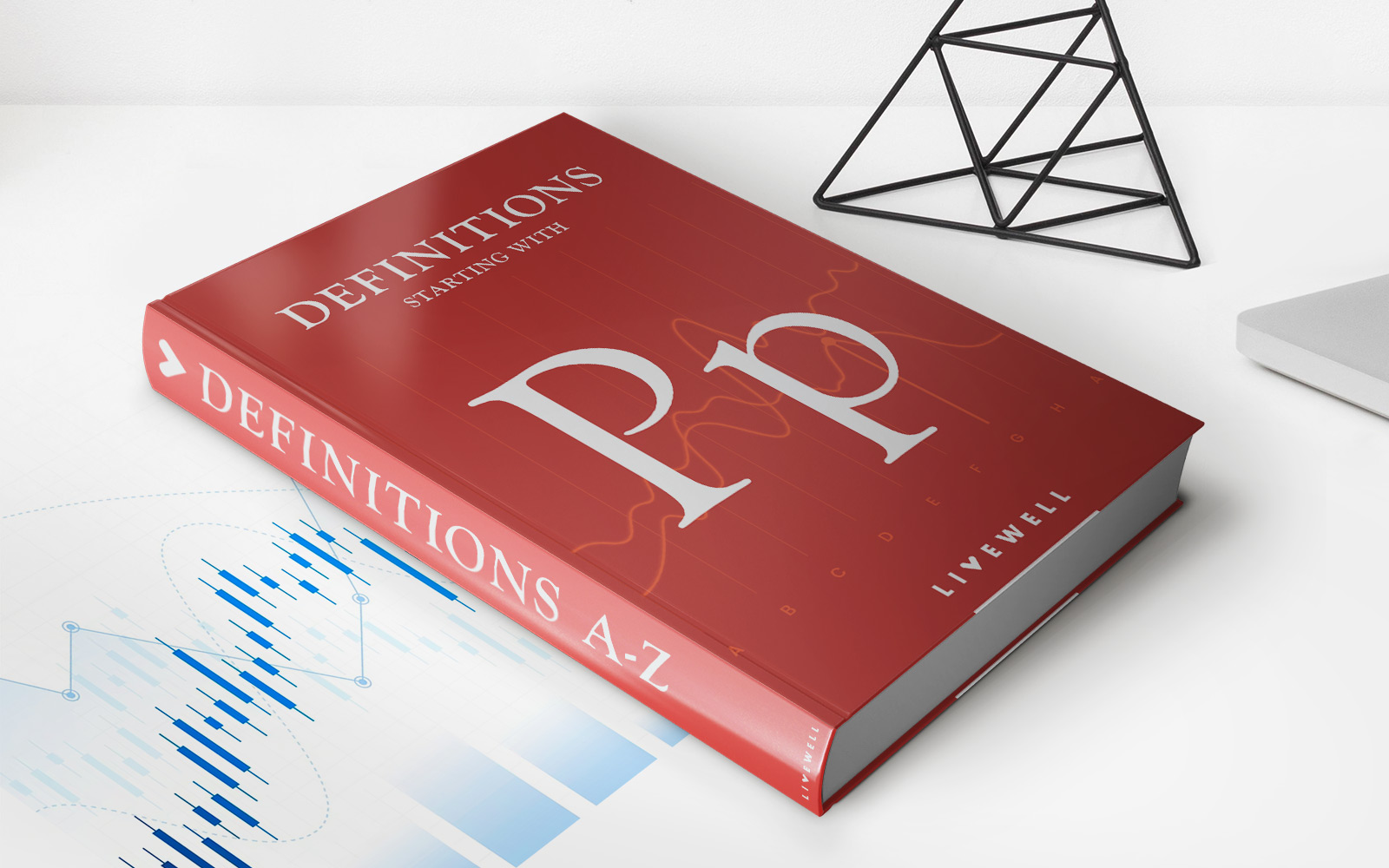Home>Finance>What Percentage Of Income Should Go To Student Loans


Finance
What Percentage Of Income Should Go To Student Loans
Published: January 20, 2024
Learn about the ideal percentage of income that should be allocated towards student loans. Get expert insights and advice on finance and managing student debt.
(Many of the links in this article redirect to a specific reviewed product. Your purchase of these products through affiliate links helps to generate commission for LiveWell, at no extra cost. Learn more)
Table of Contents
Introduction
Dealing with student loans can be a daunting task for many individuals. The rising cost of education has resulted in an increasing number of people relying on student loans to fund their college or university education. While pursuing higher education is a worthwhile investment in one’s future, it is crucial to navigate the repayment process effectively.
One common question that borrowers often ask is: “What percentage of my income should go towards student loan payments?” Unfortunately, there is no one-size-fits-all answer to this question. The ideal percentage will vary depending on several factors, such as income level, debt-to-income ratio, financial goals, and other financial obligations.
In this article, we will delve into the factors that you should consider when determining the percentage of income that should go towards student loans. We will also provide some recommended guidelines for student loan payments based on income, as well as strategies for managing your student loans effectively while balancing other financial responsibilities.
By understanding these factors and implementing the right strategies, you can gain control over your student loan debt and work towards a brighter financial future.
Factors to Consider When Determining the Percentage of Income for Student Loans
When determining the percentage of your income that should go towards student loan payments, it is important to consider various factors that can impact your ability to repay your loans comfortably. Here are some key factors to keep in mind:
1. Income Level: The amount of income you earn plays a significant role in determining how much you can afford to allocate towards student loan payments. Generally, the higher your income, the more you can comfortably devote to loan repayment.
2. Debt-to-Income Ratio: Your debt-to-income ratio is an essential metric that lenders and financial institutions use to assess your ability to manage debt. It is calculated by dividing your monthly debt payments by your gross monthly income. Lenders typically prefer a lower debt-to-income ratio, usually below 40%. To ensure a healthy financial situation, it is advisable to keep your student loan payments within a reasonable range of your income.
3. Financial Goals: Consider your long-term financial goals when determining the percentage of income to allocate towards student loans. If you have other financial objectives, such as saving for retirement or purchasing a home, you may need to adjust your student loan payments accordingly to create a balance.
4. Emergency Fund: It is crucial to have an emergency fund to cover unexpected expenses. When deciding on your student loan payment percentage, ensure that you are leaving enough room to contribute to your emergency savings regularly. This will provide you with financial security and prevent you from falling into further debt if unexpected situations arise.
5. Interest Rates and Loan Terms: Evaluate the interest rates and terms of your student loans. Higher interest rates will result in more interest accruing over time, so you may want to allocate a higher percentage of your income towards loan repayments to reduce the total interest paid. Longer loan terms may lower your monthly payments, but they will also increase the total cost of the loan.
6. Future Income Potential: Consider your future income potential when deciding on your student loan payment percentage. If you anticipate a significant increase in income in the near future, you may be able to allocate a higher percentage towards loan repayment. Conversely, if your income is expected to remain relatively stable, you may need to adjust your payment percentage accordingly.
Keep in mind that these factors are not exhaustive and may vary based on individual circumstances. It is essential to assess your own financial situation and consult with a financial advisor if needed to determine the percentage of your income that can be comfortably allocated towards student loan payments.
Recommended Guidelines for Student Loan Payments Based on Income
While there is no fixed rule for determining the exact percentage of income that should be allocated towards student loan payments, there are some recommended guidelines that can help borrowers manage their loans effectively. These guidelines are based on income levels and can provide a starting point for setting manageable monthly payments. Here are some general recommendations:
- Income less than $20,000: If your annual income is less than $20,000, it is advisable to keep your student loan payments at or below 10% of your monthly income. This percentage allows for manageable monthly payments, considering the lower income level.
- Income between $20,000 and $40,000: For individuals earning between $20,000 and $40,000 annually, a student loan payment percentage of 10% to 15% of monthly income may be appropriate. This range takes into account the increased income level and provides a reasonable proportion towards loan repayment.
- Income between $40,000 and $60,000: If your annual income falls within the $40,000 to $60,000 range, allocating 15% to 20% of your monthly income towards student loan payments can help accelerate your repayment while balancing other financial obligations.
- Income above $60,000: For individuals earning above $60,000 annually, a student loan payment percentage of 20% or more may be attainable. This higher percentage allows for faster repayment and decreases the overall cost of the loan.
Remember, these guidelines are not set in stone and should be adjusted according to your specific financial circumstances. If you have other significant financial commitments or a high debt-to-income ratio, you may need to allocate a lower percentage towards student loan repayment to maintain financial stability.
It is important to note that these percentages are intended as rough estimates and may not be suitable for everyone. Each person’s financial situation is unique, so it is crucial to evaluate your individual circumstances and consider other factors we discussed in the previous section when determining your student loan payment percentage.
Furthermore, it is recommended that you review your student loan repayment plan regularly, especially if there are major changes to your income or financial situation. Adjusting your payment percentage as needed can help keep your loan repayment on track and prevent any undue financial strain.
Strategies for Managing Student Loans Effectively
Managing student loans can feel overwhelming, but with the right strategies, you can take control of your debt and work towards financial freedom. Here are some strategies to help you manage your student loans effectively:
- Create a budget: Start by creating a monthly budget that includes all your income, expenses, and student loan payments. This will help you understand your financial situation and ensure that you allocate enough funds towards loan repayment.
- Consider loan consolidation: If you have multiple student loans, consolidating them into one loan can simplify the repayment process. It can also potentially lower your interest rate or extend your repayment term, reducing your monthly payment amount.
- Explore repayment options: Investigate various repayment options such as income-driven repayment plans, which adjust your monthly payment based on your income and family size. These plans can be particularly beneficial for borrowers with lower incomes.
- Make extra payments: Whenever possible, consider making extra payments towards your student loans. By paying more than the minimum required amount, you can reduce the principal balance faster and save on interest in the long run.
- Automate your payments: Set up automatic payments to ensure that you never miss a payment deadline. Many loan servicers offer interest rate reductions for borrowers who enroll in auto-debit programs, providing an additional incentive to automate your payments.
- Seek student loan forgiveness programs: Research and explore student loan forgiveness programs that may apply to your occupation or circumstances. Public Service Loan Forgiveness (PSLF) and Teacher Loan Forgiveness are examples of programs that can significantly reduce or eliminate your student loan debt.
- Communicate with your loan servicer: If you encounter any difficulties with repayment, reach out to your loan servicer to discuss potential options. They may be able to offer temporary forbearance, deferment, or alternative repayment arrangements to help you manage your loans during times of financial hardship.
- Continuously educate yourself: Stay informed about student loan policies, updates, and resources. This knowledge will empower you to make informed decisions and take advantage of any opportunities that arise to better manage or reduce your student loan debt.
Remember, effectively managing your student loans requires diligence, discipline, and patience. It may take time to pay off your debt, but by implementing these strategies and staying committed to a repayment plan, you can gradually make progress towards financial freedom.
Balancing Student Loan Payments with Other Financial Obligations
While repaying student loans is important, it is equally crucial to balance your loan payments with other financial obligations. Here are some strategies to help you strike a balance:
- Prioritize high-interest debt: If you have other high-interest debt, such as credit card debt, it may be wise to prioritize paying off that debt first. High-interest debt can quickly accumulate and become a financial burden, so allocating more funds towards those payments can help you reduce overall debt and save on interest.
- Save for emergencies: Building an emergency fund is essential to cover unexpected expenses and prevent you from relying on credit cards or taking on additional debt. Prioritize setting aside some money each month towards your emergency savings, even if it means allocating a slightly lower percentage towards student loan payments.
- Contribute to retirement savings: While it may be tempting to focus solely on paying off your student loans, it is also crucial to save for retirement. Take advantage of employer-sponsored retirement plans or individual retirement accounts (IRAs) to ensure you are making progress towards long-term financial security.
- Invest in your career development: Allocating some funds towards career development, such as attending conferences or taking professional courses, can enhance your skills and increase your future earning potential. Investing in your career can ultimately help you pay off your student loans more quickly in the long run.
- Adjust your lifestyle: Evaluate your current lifestyle and consider making adjustments to reduce expenses. Cutting back on non-essential expenses, such as dining out or entertainment subscriptions, can free up extra funds to put towards loan repayment while still maintaining a reasonable quality of life.
- Reassess your loan repayment plan: If you find it challenging to balance your student loan payments with other financial obligations, consider reassessing your repayment plan. Explore options such as income-driven repayment plans, which can help lower your monthly payment amount based on your income.
- Seek professional advice: If you’re having difficulty managing your student loan payments and other financial obligations, consider seeking guidance from a financial advisor. They can provide personalized advice based on your specific circumstances and help you create a plan to effectively manage your finances.
Remember, it’s essential to find a balance between repaying your student loans and addressing other financial needs. By prioritizing and diversifying your financial goals, you can achieve a well-rounded approach to managing your finances while making progress towards paying off your student loans.
Conclusion
Navigating student loan repayment can be a challenging and overwhelming task, but with careful consideration and effective strategies, you can manage your loans and work towards financial freedom. When determining the percentage of your income to allocate towards student loan payments, it is crucial to consider factors such as your income level, debt-to-income ratio, financial goals, and other financial obligations.
While there are recommended guidelines for student loan payments based on income, it’s important to remember that these guidelines are not set in stone. Every individual’s financial situation is unique, and it’s essential to assess your circumstances and make adjustments accordingly. It’s always a good idea to consult with a financial advisor if you need personalized assistance in managing your student loans.
Implementing strategies such as creating a budget, exploring repayment options, making extra payments, and automating your payments can help you effectively manage your student loans. Furthermore, balancing your student loan payments with other financial obligations such as high-interest debt, emergency savings, retirement contributions, and personal development can ensure a well-rounded approach to your financial journey.
Remember that effective student loan management requires diligence, discipline, and patience. It may take time to pay off your loans, but by staying committed to your repayment plan, seeking opportunities for loan forgiveness, and continuously educating yourself about student loan policies, you can make progress towards a brighter financial future.
By taking control of your student loans and implementing these strategies, you can work towards the goal of financial stability, freeing yourself from the burden of student loan debt and paving the way for a more secure and prosperous future.














